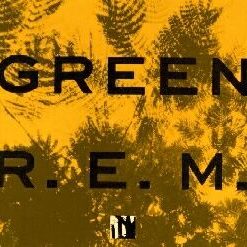For cynics and critics, “Green” was supposed to be the beginning of the end for R.E.M. After all, the Athens, Ga., band had culled a following throughout the country by essentially touring nonstop and bringing their DIY ethos to college radio — a medium they practically helped create. “Green” was their first album with Warner Bros. Records — and their deal with WB was (at the time) the most lucrative recording contract in US history. But most important to Berry/Buck/Mills/Stipe was the freedom and artistic control it provided. “Green” reflects a band at its artistic and creative zenith. It was commercially successful thanks to songs (and videos for) “Stand” and “Pop Song ’89,” but it was still weird enough and full of “R.E.M.-iness” to placate even their most devoted fans. It was also a bridge album between the jangle pop of the early days and the lushness of what was to come.
References in this Epipod:
You can buy or stream Green by R.E.M. online at iTunes, Spotify, YouTube, and Amazon.
Podcast: Play in new window | Download
Subscribe: RSS

Davis says:
Love that y’all reviewed Green in 2 parts.
I had so very much that I wanted to interject while y’all (Matt and Ratt) were talking about it, and I can’t remember most of it now that it’s been a few days, but here are 2 things:
1) As I was listening to the end of Part 2, I was driving past the steeple that is all that’s left of the church where R.E.M. played their first show (and where Peter and Michael lived) on Oconee Street in Athens, GA. Pretty serendipitous.
2) World Leader Pretend is about a singer/lyricist’s writing process as he attempts to open himself up to his audience in a way that he hasn’t before (like, by printing the lyrics to one of the songs in the album).
He’s waging war on himself at his table (coming up with thoughtful lyrics is a struggle), trying not to repeat the things he’s done before (he knows all the ways he’s kept himself private, using rhetorical and emotional devices in sympathizing and empathizing with other people’s life experiences in order to make the emotions he’s portraying ring true without necessarily being his own), and finally declaring that it’s “high time” he corrected the mistake of being closed off and use his newfound (multi-million-dollar retaining-creative-control) freedom to do as he sees fit and share his opinions in his own voice.
At least, that’s my take as a small-scale former lyricist myself.
In interviews, he often said it was his most “political” song, but I don’t believe he meant that in the sense of being about any kind of world or national politics, but rather the personal politics of openness with his audience.
If I think of any of the other things, I’ll post again.
Thanks for the podcasts, fellas!
Davis